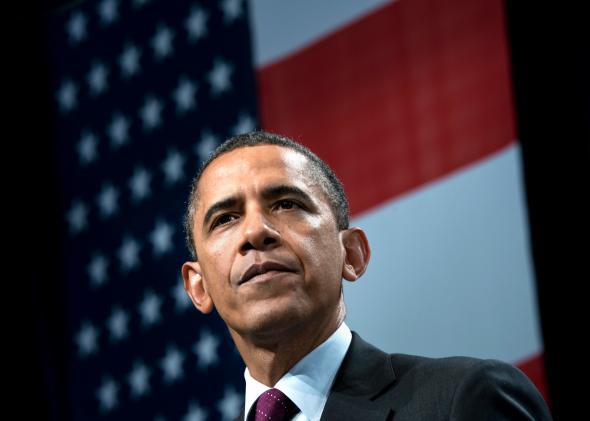The president appeared to endorse mandatory voting laws this week, and his comments have a few Constitution wonks scratching their heads.
In a speech before the City Club of Cleveland yesterday, Obama praised compulsory voting laws.
“In Australia and some other countries, there’s mandatory voting,” he said, as CNN reported. “It would be transformative if everybody voted. That would counteract money more than anything.”
He then decried the influence of large-dollar donors on American democracy, and said that mandatory voting laws could undercut their power.
“That may end up being a better strategy, in the short term,” he concluded.
Sen. Marco Rubio and others quickly criticized Obama’s comments, and White House press secretary Josh Earnest walked them back a bit today.
“The president was not making a specific policy prescription for the United States,” he said, per the Washington Times.
What’s so objectionable to conservatives about mandatory voting? Hans von Spakovsky, who heads the conservative Heritage Foundation’s Election Law Reform Initiative, said mandatory voting would violate the First Amendment.
“The ability to speak freely under the First Amendment includes the ability not to speak if you don’t want to, and that’s what you’re doing if you decide that you don’t want to vote,” he said.
He also said that enforcing a voting mandate through fines would be “a reverse poll tax.”
“I just think this is a nutty proposal,” he added.
And Trevor Burrus, a research fellow in the Center for Constitutional Studies at the libertarian-leaning Cato Institute, also argued that choosing not to vote is a form of political speech that the First Amendment protects.
“Calls for mandatory voting are absolutely bonkers, from a libertarian standpoint,” he said. “Non-voting is an important thing that communicates information.”
Mike Kelly, a Republican congressman from Pennsylvania, said that the right not to vote was essential.
“Voting’s always going to be a right, and not voting is also going to be a right,” he said. “You don’t have to vote. If you don’t think there’s a good candidate, why should you be forced, under penalty of law, to vote for somebody who you don’t think should be there? I mean, that’s pretty basic.”
The president’s suggestion found a warmer reception on the left. Michele Jawando, Vice President for Legal Progress at the Center for American Progress, said that mandatory voting laws wouldn’t violate the First Amendment as long as voters had a “none of the above” option and could choose not to vote for a specific candidate.
“I think it would be Constitutional, without question,” she said.
